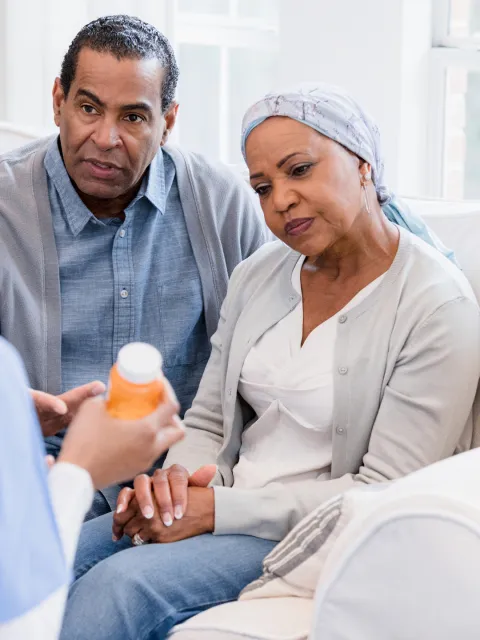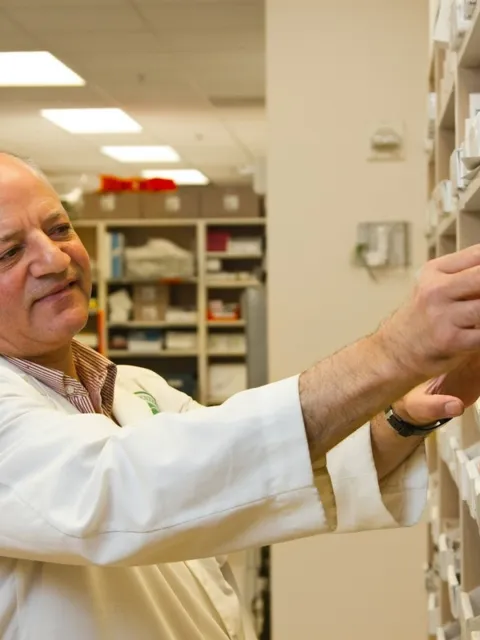Drug-resistant infections are undermining cancer care: better global data is key

Closing World Antimicrobial Awareness Week (18-24 November), Gemma Buckland-Merrett explains how better global data can support action to curb drug-resistant infections and save modern medicine.
Antibiotics have revolutionised modern medicine and are routinely relied on in much of healthcare. Without them, lifesaving treatments like chemotherapy would be impossible. However, increasing levels of antibiotic resistance (AMR) are already having a profound impact on our ability to treat infectious diseases and protect patients worldwide.
Current estimates suggest drug-resistant infections are already costing over 700,000 lives all over the world every year but, without accurate data, the exact cost is hard to quantify and could be much higher.
Antibiotics play a critical role for millions of people receiving care that can be complicated by bacterial infections. Bacterial infections are unfortunately common in cancer patients and infections are in fact the second leading cause of death in people living with cancer.
Antibiotics are essential both to prevent and treat infections but the loss of efficacy due to drug resistance poses a direct threat to the great strides made in cancer treatment in the past decades. The impact of drug-resistant infections are causing concerns for those responsible for treating cancer patients and in the UK 46% of oncologists are worried that chemotherapy will soon be unviable as a result of drug-resistant infections.
Despite some evidence highlighting the health and financial impact of drug-resistant infections on people living with cancer, there is a concerning lack of data on how drug resistance is affecting treatment outcomes. Crucially, without this data our ability to tackle drug-resistant infections and protect the lives of people living with cancer is significantly hampered.
So why is data so important and how can it help protect cancer patients from drug-resistant infections?
Having data enables us to understand the development and spread of drug-resistant pathogens and their impact on patients. It can help us predict which patients are most at risk of infections and ensure patients are given the right treatment. Determining the burden of drug-resistant infections is crucial to guide and evaluate interventions to prevent and control infections at local, national and global levels – including prioritising which new drugs to develop and which countries need more support.
Optimising the use of current antibiotics is critically important in our efforts to protect people from drug-resistant infections. Cancer patients require antibiotics to prevent infection when they are immunocompromised, but this use must also be balanced with observations that prolonged use can risk the development of antibiotic resistance.
Optimising our use of antibiotics requires well-defined evidence-based guidelines and stewardship practices that take into account the geographic variability in drug resistance and reflect local contexts. The critical factor underpinning the development of these guidelines and practices is data. It is only through reliable and openly accessible surveillance data that we can inform decision-making around which antibiotics to use and ensure we are using them at the right time, in the right dose and for the right duration.
In reality, obtaining the data we need is extremely challenging. This is particularly true for many low- and middle-income countries where surveillance systems, infrastructure and the skills required to capture and use data are often either non-existent or insufficient. We need to ensure that we strengthen the local systems and enhance their ability to capture and share data so that it is used to inform decision-making. Better data and better use of data will enable us to predict, prevent and treat drug-resistant infections, and this will have a major impact on the care of cancer patients.
As we close World Antimicrobial Awareness Week (18-24 Nov), we should be in no doubt that the rapid spread of these dangerous infections is happening now and is causing problems for doctors and people living with cancer every day and in every country. We need to call attention to the impact drug-resistant infections are having across the health sector. The cancer community has an important voice to help catalyse the decisive and lasting global action needed to curb drug-resistant infections and protect the gains made against cancer, and all of modern medicine, over the past decades.
Find out more about what
Wellcome is doing to stop drug-resistant infections
Last update
Tuesday 06 December 2022Share this page


